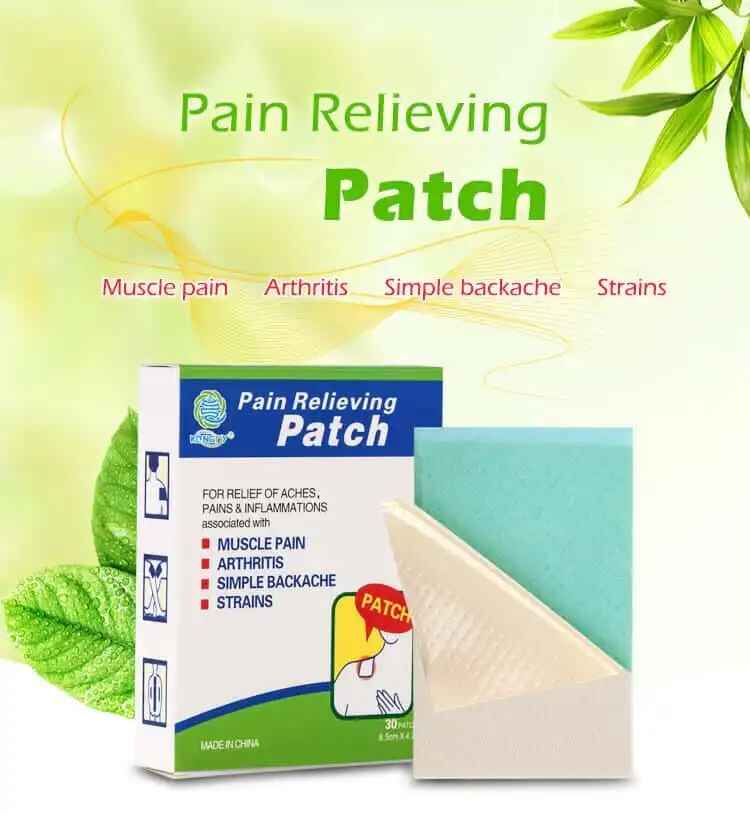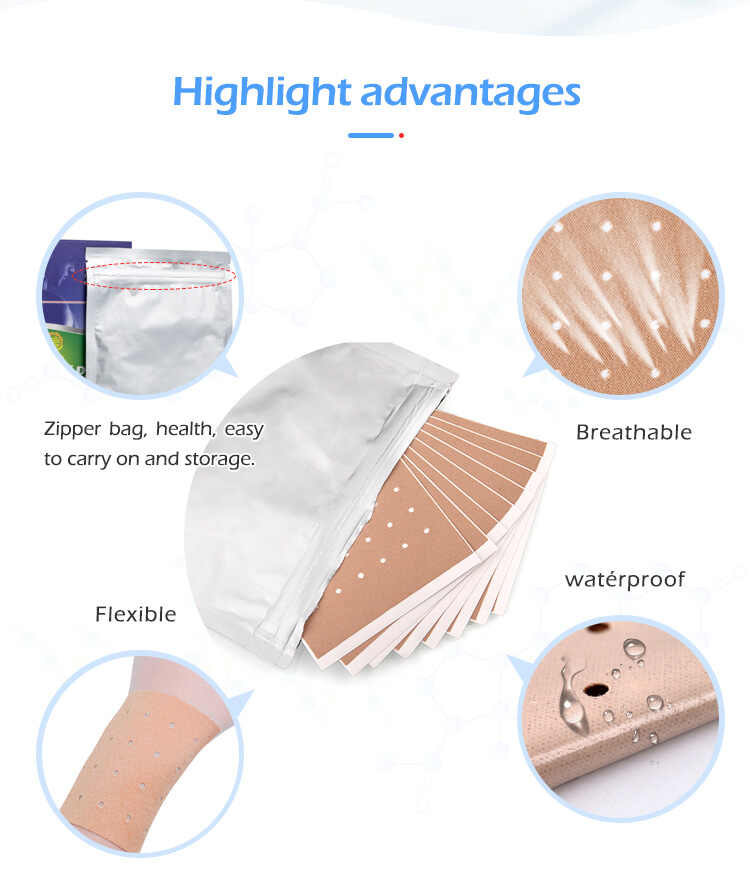What Are the Key Certifications Required for Chronic Pain Patches OEM Products?
In the highly competitive health and wellness industry, Chronic Pain Patches OEM products are gaining immense popularity due to their convenience, targeted relief, and minimal side effects. However, with rising consumer awareness and increasing global regulatory scrutiny, having the right certifications has become crucial for any Chronic Pain Patches Manufacturer or Chronic Pain Patches Supplier.

Certifications are more than just bureaucratic checkboxes—they're proof of safety, quality, and compliance. For brands planning to offer Private Label Chronic Pain Patches or Custom Chronic Pain Patches, partnering with an OEM that holds relevant certifications is essential to ensuring market access, consumer trust, and long-term success.
In this article, we’ll explore the key certifications required for Chronic Pain Patch OEM products, explain their importance, and how they affect your product's marketability and regulatory acceptance.
1. Why Certifications Matter for Chronic Pain Patches OEM Products
Before diving into the specifics, it's essential to understand why certifications are so critical in the Chronic Pain Patches OEM space:
Safety & Efficacy: Certifications confirm that a product has been tested for safety and performs as advertised.
Regulatory Compliance: To enter regulated markets like the US, EU, or Japan, certain certifications are non-negotiable.
Brand Credibility: Certifications from recognized bodies improve brand trust among consumers and retailers.
Market Access: Certifications are often a prerequisite for distribution through pharmacies and medical channels.
For Private Label Chronic Pain Patches especially, certifications provide assurance that the OEM partner adheres to industry standards.
2. Key Certifications Required for Chronic Pain Patches OEM Products
Let's explore the most important certifications any Chronic Pain Patches Manufacturer or OEM Supplier should possess.
2.1 ISO 13485: Quality Management for Medical Devices
Relevance: Global
Issued By: International Organization for Standardization (ISO)
ISO 13485 is the gold standard for medical device manufacturers. Since many Chronic Pain Patches OEM products fall under medical device regulations (Class I or II, depending on ingredients and usage), ISO 13485 certification ensures:
Consistent quality management systems
Proper documentation
Traceability and risk management processes
Why it matters: If you're considering a Custom Chronic Pain Patches line, ISO 13485 ensures the product is produced in a compliant, quality-assured environment.
2.2 GMP Certification (Good Manufacturing Practices)
Relevance: Global
Issued By: National regulatory authorities (FDA, EMA, etc.)
GMP certification verifies that a Chronic Pain Patches Manufacturer follows hygienic, controlled, and systematic processes in production.
What it covers:
Clean and safe facilities
Qualified personnel
Quality assurance protocols
Why it matters: Whether you're selling under a Private Label Chronic Pain Patches brand or developing Custom Chronic Pain Patches, GMP assures consumers that the product is safe and effective.
2.3 FDA Registration (U.S. Market)
Relevance: United States
Issued By: U.S. Food and Drug Administration (FDA)
For the U.S. market, FDA registration is a critical step. If Chronic Pain Patches OEM products are classified as Class I or II medical devices, they must be listed with the FDA. In some cases, a 510(k) clearance is also required, depending on the active ingredients and intended use.
Why it matters: FDA-registered Chronic Pain Patches Suppliers can offer products that meet U.S. regulatory standards, which boosts credibility and consumer confidence.
2.4 CE Marking (European Market)
Relevance: European Union
Issued By: EU Notified Bodies
The CE Mark is mandatory for selling medical devices in the European Economic Area. For Chronic Pain Patches OEM classified as medical devices, the CE Mark confirms compliance with:
EU Medical Device Regulation (MDR)
Safety, performance, and risk assessment standards
Why it matters: If your brand is looking to penetrate EU markets with Private Label Chronic Pain Patches, a CE-certified OEM is a must.
2.5 ISO 22716: GMP for Cosmetics (If Applicable)
Relevance: Global
Issued By: International Organization for Standardization (ISO)
For patches that are classified as cosmetics rather than medical devices (e.g., those using herbal ingredients for general wellness), ISO 22716 is a crucial certification.
Why it matters: Not all Chronic Pain Patches Suppliers produce strictly pharmaceutical-grade products. If your custom formulation leans toward herbal pain relief, ISO 22716 shows adherence to cosmetic GMP standards.
2.6 MSDS (Material Safety Data Sheet)
Relevance: Global
Issued By: Manufacturer
An MSDS provides detailed information about the ingredients, safety, handling, and emergency procedures for substances in your patches.
Why it matters: This is often required for customs clearance and distribution, especially if your Custom Chronic Pain Patches include unique ingredients or herbal extracts.
2.7 Halal, Vegan, or Organic Certifications (Optional but Marketable)
Relevance: Consumer-driven
Issued By: Respective certifying bodies
Many modern consumers look for Private Label Chronic Pain Patches that align with their values. Halal, vegan, cruelty-free, or organic certifications help differentiate your product.
Why it matters: These are not always mandatory but can strongly influence purchasing decisions and expand your market base.
3. How to Verify an OEM’s Certification Status
Before partnering with any Chronic Pain Patches Manufacturer or OEM Supplier, it's essential to verify their claims. Here's how:
Request Documentation: Always ask for digital copies of certifications.
Cross-Check with Certifying Bodies: Many organizations offer online verification tools.
Factory Audits: Consider third-party audits or site visits, especially for high-volume orders.
Check Expiry Dates: Certifications must be current and relevant to your target market.
4. How Certifications Benefit Your Chronic Pain Patch Brand
Working with a certified Chronic Pain Patches OEM brings both direct and indirect benefits to your business:
| Benefit | Description |
|---|---|
| Faster Market Entry | Regulatory-approved products speed up legal clearance and distribution. |
| Reduced Liability | Certified products reduce legal and compliance risks. |
| Stronger Brand Image | Consumers are more likely to trust certified, verified products. |
| Retail & Pharmacy Access | Certified products are eligible for shelf placement in regulated markets. |
| Long-Term Scalability | Scalable production is easier with standardized, compliant processes. |
5. Choosing the Right Certified Chronic Pain Patches OEM Partner
When evaluating potential Chronic Pain Patches Manufacturers or Suppliers, ensure they:
Hold all relevant certifications (ISO, GMP, FDA, CE, etc.)
Have experience in producing Private Label Chronic Pain Patches
Offer transparent documentation
Are open to customization (formulation, packaging, labeling)
Comply with your target market’s regulatory framework
Ask for client references, product samples, and testing results to further validate their credibility.
Conclusion
Certifications are the backbone of product integrity in the Chronic Pain Patches OEM industry. Whether you're entering the market with Custom Chronic Pain Patches or expanding your portfolio with Private Label Chronic Pain Patches, choosing a certified Chronic Pain Patches Manufacturer ensures you stay compliant, competitive, and credible.
A fully certified OEM partner doesn’t just help you meet regulatory requirements—they become a vital ally in building consumer trust, navigating complex markets, and scaling your brand sustainably.
Related Questions and Answers
Q1: What’s the most important certification for a Chronic Pain Patches OEM?
A: ISO 13485 and GMP are foundational certifications, especially if the patch is classified as a medical device.
Q2: Can I sell Chronic Pain Patches without FDA approval?
A: Only if the patch is not considered a medical device. If it is, FDA registration or clearance is mandatory for the U.S. market.
Q3: What’s the difference between ISO 13485 and GMP?
A: ISO 13485 focuses on the overall quality management system, while GMP focuses on the actual manufacturing practices and facility standards.
Q4: Are CE and FDA certifications interchangeable?
A: No. CE is for the European market; FDA is for the U.S. Each has different requirements and evaluation processes.
Q5: Do certifications apply to packaging as well?
A: Yes. Labels, claims, and packaging materials must also meet relevant regulatory standards, especially for medical devices.






